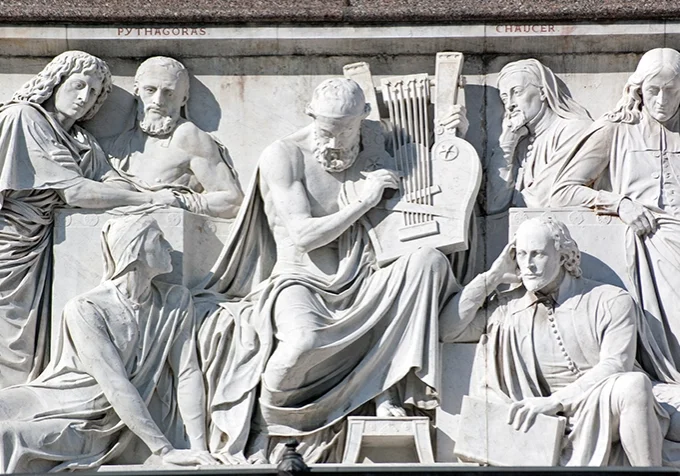Understanding the Wonders of Mentorship
Updated: June 19, 2024
Published: May 12, 2022

In Homer’s masterpiece The Odyssey, when Odysseus leaves Ithaca to fight in the Trojan war, he leaves his son Telemachus with a man named Mentor who has been tasked with looking after him. Throughout the course of the story, Athena, the goddess of wisdom, disguises herself as Mentor and passes on a message to Telemachus. She tells him not to trust the suitors pursuing his mother, Penelope, and that he must locate his father and unearth what happened to him.
Through Telemachus and Mentor, Homer explores the reciprocal relationship between a teacher and a student and the necessary dialogue that forms the foundation of intellectual exchange. As is the case with all of Homer’s extended metaphors, the significance is complex. The mentor is a trusted custodian and a source of wisdom. However, it seems that wisdom resonates more deeply with the learner when delivered, not from a family member or close friend, but a mentor. It’s something of a paradox. The mentor expresses at once the necessary distance but also the proximity needed for a message to be received and internalized. Athena understands this well, hence her disguise.
Education, ultimately, is an act of mentoring: the teacher is a guide, a voice of wisdom who has been entrusted with a parent’s child. Post-1970s rhetoric downplays this role. It tends to frame teachers as facilitators who work from the sidelines with minimally invasive techniques to help the student learn. This loses track of the more enduring and simple truth: there is no replacement, no substitute, for the relationship between an apprentice and a master. The ancients understood the benefits of such a partnership and there is much we can still learn from it today.
True mentoring goes beyond a classroom and even beyond adolescence. As adults, we still need coaches, supervisors, and elders who have lived experiences that can help us grow and discover new ways of thinking. But for many, this relationship is hard to find. Both modern workplaces and classrooms have become either massive, anonymized structures or individualistic, competitive environments. What would a return to the old ways look like? Mentoring is a powerful expression of learning and growing. Through it, we can embed into society a deeper appreciation of compassion, teamwork, and support.
Who is your mentor? Who are you mentoring? When will you next meet?
